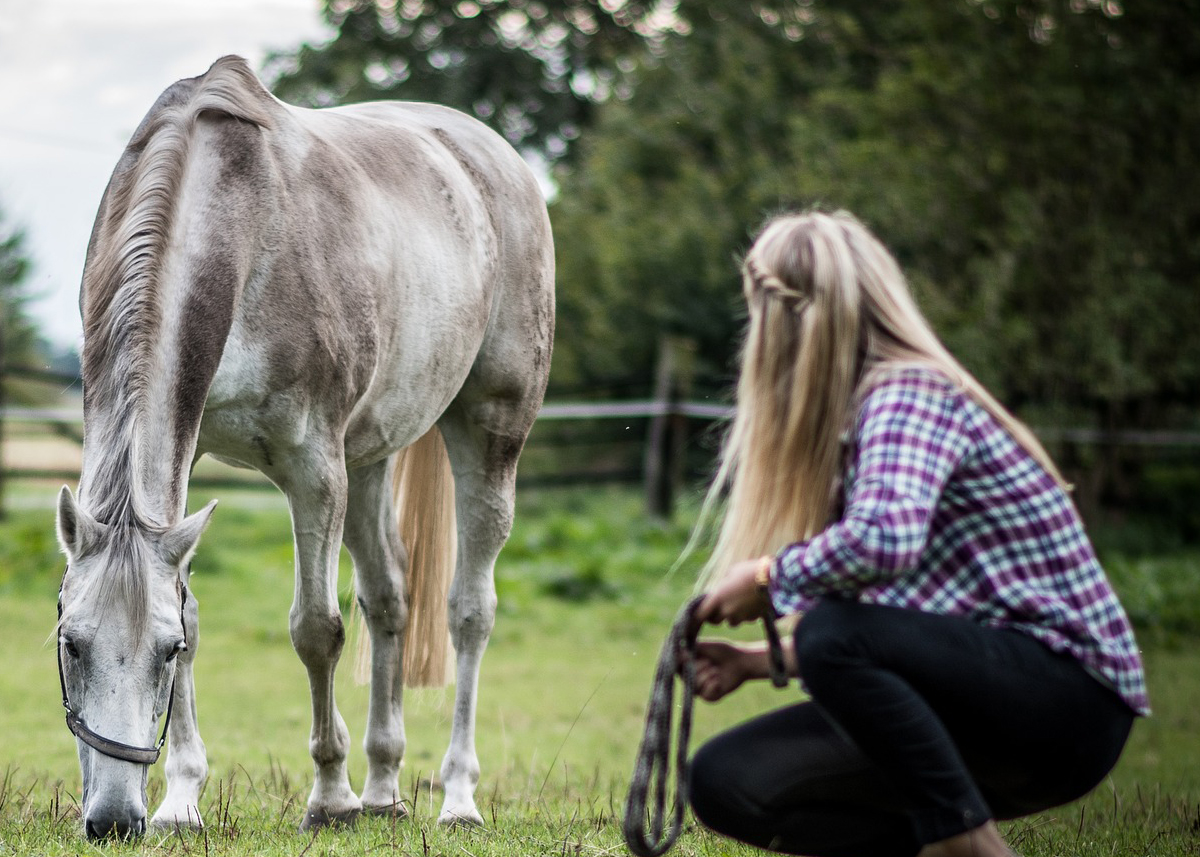
Although certain illnesses and conditions will have obvious signs and indicators that a veterinarian should be called, others may not. It is critical to know the normal behavior, attitude, and gait of your horses, since changes that could require veterinary attention may be subtle at first.
No one knows your horse better than you. Lean how to take your horse’s heart rate (normal 28-48 beats per minute), respiratory rate (10-20 breaths per minute), and temperature (99-101.5 F), and know the normal values for your horse. Be familiar with normal gum color (light pink) and capillary refill time (less than 2 seconds). Understanding what is normal for your horse will help you identify subtle changes and will help improve communication with your veterinarian should an issue arise.
Equally important as knowing when to call your vet, is having a plan for emergencies. Keep important phone numbers readily available, have a plan for transportation if your horse requires a referral to a hospital, and keep a first aid kit on the farm and in your trailer. Consider discussing a backup veterinarian with your vet in case they are unavailable. Keeping directions and maps available to local veterinary hospitals may help expedite travel should that be necessary. Most importantly, remember to stay calm and call your vet sooner rather than later if you suspect a problem.
Specific Symptoms and Conditions
Call the vet if your horse has…
- Fever
- Adult: temperature greater than 101.5 o F
- Foal: temperature greater than 102 o F
- Temperatures over 103 o F indicate a serious problem and your horse should be placed in a cool area with fans and hosed off until the vet arrives
- Abnormal gum color (red, purple, white, or yellow)
- Squinting, swollen, cloudy or tearing eye
- Yellow or green nasal discharge
- Loss of appetite or difficulty eating
- Chronic cough
- Sweating profusely
- Lame (head-bobbing, reluctant to walk or trot, laying down more than usual)
- Unable to get up
- Unable to move
- Uncoordinated gait (ataxia) or stumbling excessively
- Seizures or collapse
- Profuse bleeding, deep wounds, or lacerations
- Difficulty breathing (nostril flare, distressed, increased respiratory rate)
- Injury over a joint, tendon, or on the bottom of the foot
- Depression or anxiety
- Diarrhea (more than loose manure from excitement/trailering)
- Blood in urine
- Heat stress
- Unusual swelling or suspected bite (snake, spider, etc.)
- Mare is foaling and there is no progression in 10-15 minutes from water breaking. Normal deliveries take 30-40 minutes from water break to foal on the ground
Older Horse
- Losing weight
- Not eating well
- Dropping feed or difficulty chewing may indicate dental disease
- Not shedding out in the spring/long, curly hair coat
- Drinking and/or urinating excessively
- Lame
- See above specific symptoms and conditions
Foal
- Remember the 1-2-3 Rule! 1 hour to stand, 2 hours to nurse, and 3 hours for the mare to pass the placenta. If any of these are broken, call your vet!
- Mare has no milk, foal not nursing, IgG low (not enough colostrum)
- All foals should be evaluated by a veterinarian within 12-24 hours of birth to ensure adequate passive transfer
- Diarrhea in the first few days of life or any diarrhea that persists
- Fever (temperature greater than 102 o F)
- Abnormal behavior
- Seizures or other neurological signs
- Unable to stand
- Colic, bloated
- Milk coming out of nose
- Difficulty breathing or increased respiratory rate
- Any abnormalities with the eye, for example: tearing, squinting, swelling, cloudy appearance
- Straining to urinate or defecate
- Lame, swollen joint or joints
Colic
- Pawing, rolling, stretching out, flank watching
- Signs are severe or unrelenting
- Persistent pain despite initial treatment with pain reliever/sedatives
- High heart rate/respiratory rate/abnormal gums
- Chronic, mild signs of color
- Sooner is always better than later – call when you notice a problem!
Seasonal Reminders for Veterinary Calls
Spring
- Routine vaccination of adults
- Discuss deworming schedule for the year/fecal exams
- Annual physical/wellness examination
- Breeding soundness exams on mares and stallions
- Foal wellness exam in the first 12-24 hours of life and IgG check
Fall
- Vaccination boosters, 2nd dose weanlings
- Annual dental exam (any time of the year)
- Wellness examination
Winter
- Vaccination 3rd dose weanlings
Any Time of the Year
- If you are purchasing a new horse, call your veterinarian for a thorough physical and soundness examination
- Any time you suspect an emergency or note any of the symptoms listed above
Remember that this list is not exhaustive. If you have specific concerns about your horse’s condition, it is always better to call and discuss them with your veterinarian. Earlier diagnosis and treatment typically provides you and your horse with the best possible outcome.
Information provided by Dr. Amanda House, Veterinarian, UF Large Animal Internal Medicine, Clinical Assistant Professor at the UF College of Veterinary Medicine, Diplomate of the American College of Veterinary Internal Medicine, Equine Extension Specialist, and Course Director of the Practice-Based Equine Clerkship Program.





